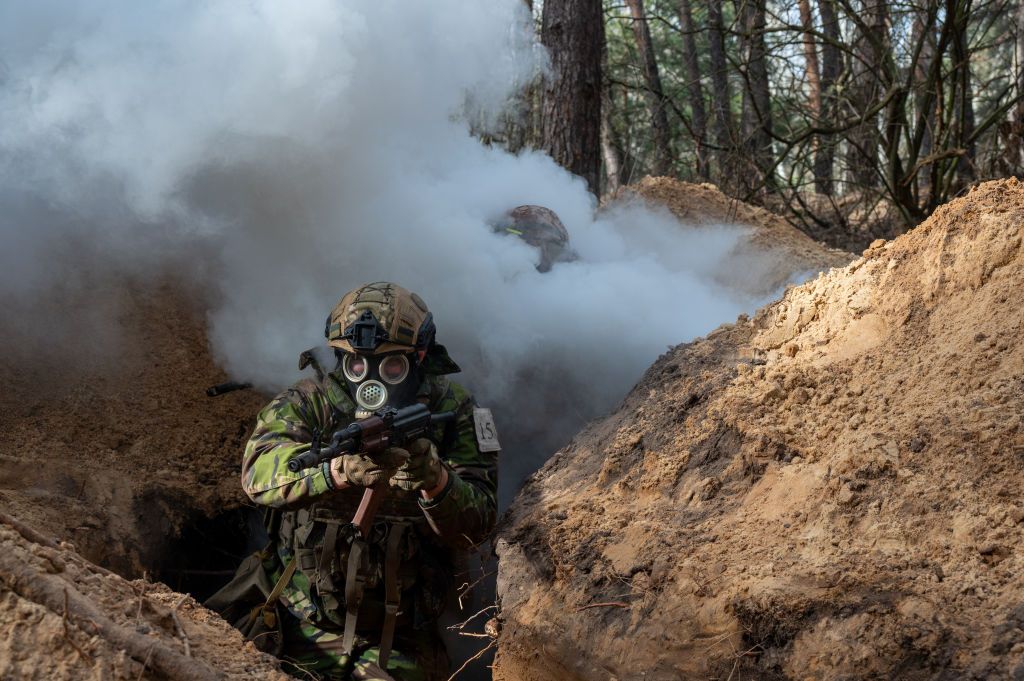Russian forces are utilizing chemical weapons, including suffocating and tear gas grenades dropped from drones, in an effort to capture the village of Ocheretyne in Donetsk Oblast, according to Ukraine’s Khortytsia Group of Forces spokesperson Nazar Voloshyn. The use of prohibited chemical weapons has also been confirmed by Russian naval infantry units in the village of Krynky. Riot control gasses such as tear gas are classified as chemical weapons when deployed in warfare, violating the Geneva Protocol of 1925.
President Volodymyr Zelensky has warned of a potential major Russian offensive in May or June, with attention focused on the Bakhmut axis as Russian troops mobilize near Chasiv Yar. Approximately 20,000 to 25,000 Russian soldiers are reportedly attempting to storm Chasiv Yar, a key location for further Russian advances in Donetsk Oblast. Russian troops have captured cities like Bakhmut, Kostiantynivka, Kramatorsk, and Sloviansk in previous offensives, and Ukrainian troops are currently engaged in combat with Russian paratroopers in the area.
Zelensky has expressed concerns that Russia will target Chasiv Yar by May 9, aligning with Russia’s upcoming Victory Day celebration, which marks the Soviet Union’s victory over Nazi Germany during World War II. Ukrainian military officials are also voicing alarms about the worsening situation in Donetsk Oblast as Ukrainian ammunition and supplies dwindle. The intensified use of chemical weapons by Russian forces underscores the brutal tactics and increasing urgency of the conflict.
The Counteroffensive with Tim Mak, a blog that covers developments in the conflict, reported on the rising use of chemical weapons by Russia in Ukraine. The article from March 22, 2024, highlighted the impact of chemical weapon attacks on civilians and soldiers, underscoring the need for international attention and condemnation of such violations. The use of suffocating and tear gas grenades has been documented in multiple incidents, raising concerns about the indiscriminate targeting of civilians and non-combatants.
The deployment of chemical weapons by Russian forces in Ukraine reflects a dangerous escalation of the conflict, with devastating consequences for the civilian population and the environment. The violation of international norms and agreements on the use of chemical weapons underscores the disregard for human life and the laws of warfare. As the situation in Donetsk Oblast intensifies, the need for international condemnation and accountability for these atrocities becomes increasingly urgent.
The use of prohibited chemical weapons in the ongoing conflict in Ukraine poses a significant threat to the safety and well-being of civilians and soldiers on both sides. The reported deployment of suffocating and tear gas grenades by Russian forces in their offensive operations underscores the brutality and inhumanity of their tactics. As the conflict escalates and the potential for a major Russian offensive looms, the international community must take a firm stand against the use of such weapons and hold those responsible accountable for their actions.















